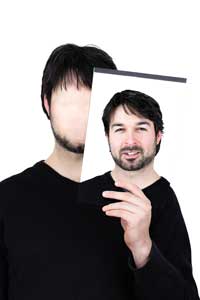 Social media’s presence in our everyday lives has done nothing but grow. Whether one prefers Instagram, FaceBook, Twitter, blogs, or vlogs, it is almost guaranteed that each and every person who has access to a smartphone or computer checks in with their online “friends” dozens of times a day. At first thought it would seem that this is good for our mental health — we are more connected, right? — but in actuality it can be very detrimental.
Social media’s presence in our everyday lives has done nothing but grow. Whether one prefers Instagram, FaceBook, Twitter, blogs, or vlogs, it is almost guaranteed that each and every person who has access to a smartphone or computer checks in with their online “friends” dozens of times a day. At first thought it would seem that this is good for our mental health — we are more connected, right? — but in actuality it can be very detrimental.
Take Instagram model Essena O’Neill, for example. In a very public announcement, O’Neill left Instagram — abandoning her thousands of followers. Even though she was earning up to $1,400 per sponsored post, she said the money wasn’t worth the negative effects endured from a daily addiction to comparison. Seeing others’ “perfect lives” does cause one to compare and contrast our own struggles and realities, and it can be hard to remember that what we see is only what someone else WANTS us to see. The reality can be very, very different!
Self-worth should not be measured in “likes,” and our value as a person does not equal how “pretty” or “handsome” we are. O’Neill edited her photo captions to reflect the amount of time she spent on perfecting her appearance, and many people were very surprised that her “morning look” only came about after hours of preparation.
Keeping our online identity close to our true identity is of the utmost importance, researchers say. If we stray too far from our true selves, then there is a much higher risk of social anxiety. Staying in the present moment is necessary as well, and it definitely wouldn’t hurt to put a cap on the amount of times you click over to FaceBook and Instagram! Remember that a picture can be worth a thousand words, but those words were written by someone who wanted to write a very specific book — and you don’t get the whole tale from just a page (or, should we say a photo!).































 An article from US News Health reports that 42% of plastic surgery patients received information and advice from social networking sites, instead of from their personal friends.
An article from US News Health reports that 42% of plastic surgery patients received information and advice from social networking sites, instead of from their personal friends.